Is Intuitive Eating Right for You?

Intuitive dating is the opposite of diet. It lets you make peace with food and re-discover your connection to your body cues so you can know what your body is communicating to you, eat what you want – when you want – how you want, and then move on. But does intuitive eating work? I’m delving more into how you can tell if intuitive eating is right for you and I’m sharing some of the most common questions I get about intuitive eating.

Spoiler alert: the intuitive eating framework can be used by everyone. Yup, you read that right.
We all are born natural intuitive eaters. But by the time we reach adulthood this ability has been suppressed (usually by years of dieting) to the point where we’re out of touch with our body’s natural eating patterns and feelings of hunger, fullness and satisfaction. But we all have, deep down, the ability to reconnect and recover our inner intuitive eater.
How do you know if you’re out of touch with your body’s natural eating patterns?
- You feeling guilty eating certain foods
- You’ve eliminated specific foods or food groups
- You categorize foods as “good” or “bad”
- You count calories or macros
- You track your food using an app or journal
- You use exercise to offset what you eat
- You’d like to be a certain size or weight
If any of those statements sound like you, you’re not eating intuitively or listening to your body.
How do you know if intuitive eating is right for you?
Well, this is kind of a trick question since as I said earlier, the intuitive eating can be used by everyone. But if any of the statements below resonate, you’re in a place where intuitive eating can help you now.
- You want to feel confident with your food choices
- You want to stop obsessing or thinking about food all the time
- You want to feel calm and in control around food
- You want to be able to trust your body when it tells you it’s hungry and full
- You want to be able to trust yourself around all foods – even those foods that are “trigger foods”
- You want to learn how to cope with your feelings without using food
- You want to exercise because you enjoy it, not to negate the calories you eat.
- You want to be able to eat all foods without any guilt, shame or regret
That said, some people – such as those in low-income communities who lack access to food and other essential social services or marginalized folks who experience systemic oppression and microagressions on a daily basis – find that parts of intuitive eating are inaccessible.
Intuitive eating also can become problematic when it is applied as a rigid set of “rules” that must be followed sequentially and precisely as the book dictates.
In reality, the principles of intuitive eating are just one tool that can be used in your anti-diet, anti-oppression toolbox. Certain parts of it may feel more helpful; other parts not so much.
As Heather Caplan, a dietitian and the host of the RD Real Talk podcast says in one of her podcast episodes, “Many of the principles of intuitive eating can be applicable to every human being in some way, shape, or form. However, this is only true when we see intuitive eating as a foundation. Not a set of rules that apply in the same way to the same people across the board.”
“But my BMI shows I’m overweight/obese – shouldn’t I lose weight for health reasons?”
This is a question I get all the time. We are so conditioned (and incorrectly taught) to think that higher weights lead to higher rates of disease and worse health outcomes. Yet study after study after study shows that weight is not a good indicator of health. And there are zero (yes zero) diseases that only occur in people at higher weights. And not matter what someone’s weight is, they are able to pursue health (if they want to) in a variety of ways that are not impacted by weight or weight loss.
This is the crux of the Health at Every Size (HAES) approach. HAES is based upon dozens of research studies showing that it’s your behaviors that predict your health, not your body size. People of all different body sizes have similar health improvements when they change their behaviors – regardless of whether or not their weight changes.
Don’t forget that 95% of people who lose weight gain it back and two-thirds of those people gain back more weight. Long term weight loss is possible only for a select few (i.e. less than 5% of people) and is not the norm for most people. This is NOT your fault or lack of willpower – this is because our bodies our biologically wired to push back against dieting attempts.
So instead of putting the focus on the number of the scale, can you put a focus on what you CAN do to improve your health. That may mean focusing on developing healthier behaviors around stress, sleep, movement and/or food (intuitive eating can help with that food piece). It can also mean focusing not just on physical health but mental health, social health, and emotional health.
So I will repeat: weight (and weight loss) does not equal health. Intuitive eating is for you no matter what your weight or body size.
“I’m not happy with my weight, should I lose weight before trying intuitive eating?”
Here’s another one I hear all the time. A client just asked me this a few weeks ago – isn’t she better off losing X pounds first, then she can try Intuitive Eating? I totally get why this seems appealing. Diet culture has sold us the fantasy of a new, perfect diet being right around the corner. Each new diet brings excitement and hope that this diet will be the one that works. For most clients I see, the idea of not dieting can be really scary because it’s the only thing they know of to lose weight. But as long as you’re holding onto the idea that just one more diet will work, or that losing X pounds will make you happier and ready to really start living, you’ll never truly be free of diet culture.
A client told me recently how she realized that even though she was a smaller size a few years ago, she was much less happy than she is now. Her weight may have been lower, but she was constantly thinking about food, would frequently argue with her boyfriend about when/what she could eat, and – despite the fact that she was in a smaller body – still didn’t feel good about herself. So think about it: is losing those X pounds really going to make you happier? And – even if you think it might – it’s important to remember the Dieter’s Dilemma or the Guilt-Deprivation Cycle.
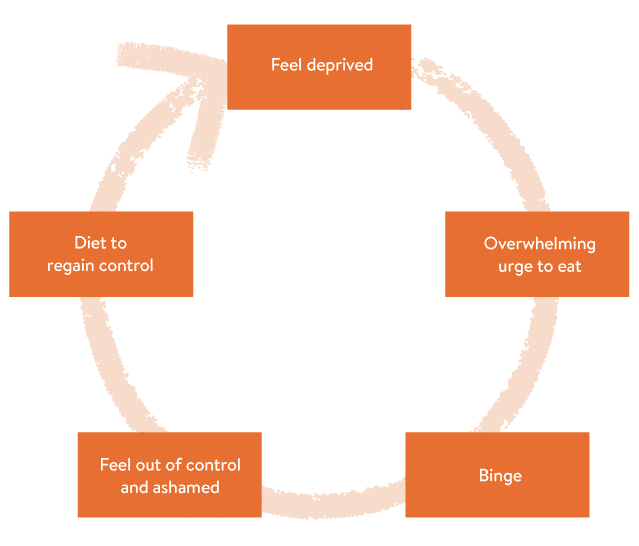
Photo credit luvoinc.com
The Dieter’s Dilemma begins with the desire to lose weight which leads to dieting. Dieting leads to feeling deprived, which causes cravings and the overwhelming urge to eat, which leads to overeating or binging. Afterward, the dieter feels out of control and guilty and starts dieting again to regain control. And the cycle continues. The only way to break the cycle: reject the diet mentality and start learning how to eat intuitively.
“If I allow myself to eat anything, won’t I always want unhealthy foods?”
This is a very normal concern, especially if you’ve tried many different diets and only feel like you are choosing nutritious foods because you “should” – rather than because you want to. It’s important to recognize that it is the dieting mentality that causes overeating and binging. So once you learn to make peace with all foods – and your body knows you can have these foods whenever you want – you’ll be able to truly listen to your body’s feelings of hunger, fullness and satisfaction to decide what foods you want to eat. Sometimes these may be less healthy foods, but very often you’ll find that – when you’re really listening to your body – you’ll want more nutritious foods.
“I don’t have the willpower to do intuitive eating.”
Here’s the great news: Intuitive Eating has NOTHING to do with willpower! It’s never been about your lack of willpower – it’s the system of dieting that is the problem, and diets set you up for failure. Dieting is a type of forced starvation. When you start to restrict types of food and/or amounts of food, your body switches into survival mode, triggering cravings and overeating. So the more you try to not have chocolate or french fries, the more your body will crave it.
But with intuitive eating, as you learn to reject the diet mentality and give yourself unconditional permission to eat all the foods, the opposite happens. This is food habituation, where the more you’re exposed to foods, the less your brain thinks of or cares about it and your desire to eat it decreases. As you make peace with food, learn to honor your hunger, feel your fullness, and trust and respect your body, you’ll find that willpower is no longer needed – around any foods.
Here’s a different question for you…
If you don’t move forward with trying intuitive eating, what is the alternative?
If your answer is “another diet” or “dieting”, I urge you to ask yourself “What has your history shown about dieting?” How has it helped you? And, more importantly, how has dieting caused you harm? If you’ve reacted in the past by dieting, it’s likely led to bigger problems including guilt and shame, cravings, weight gain, sluggish metabolism, and disordered eating behaviors – just to name a few.
I’d love to hear from you – please share your thoughts below!
Are you interested in learning more about intuitive eating?
Check out my Unapologetic Eating 101 Course, an online, self-paced program to liberate yourself from dieting and make peace with food and your body.
My team and I also offer virtual one-on-one support – you can check out our virtual intuitive eating nutrition coaching packages.
My book, Unapologetic Eating: Make Peace with Food and Transform Your Life, is also a great resource that includes information, research, and reflection prompts to help you move away from dieting and come back home to your body, so you can live your most unapologetic, liberated life.
Author Bio
This article was written and reviewed by Alissa Rumsey, MS, RD, CSCS, a registered dietitian and Certified Intuitive Eating Counselor. She specializes in weight-inclusive care, intuitive eating, body image healing, mindfulness, self-compassion, and healing from chronic dieting, disordered eating, and eating disorders. Alissa holds a Bachelor’s Degree in Nutrition and Exercise Science, and a Master’s Degree in Health Communications, and is also an NSCA Certified Strength and Conditioning Specialist.
5 Comments
Leave a Comment
share the love
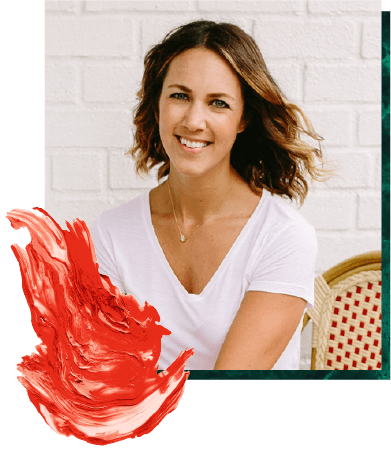
about
Alissa Rumsey, RD.
Alissa Rumsey, MS, RD, CDN, CSCS (pronouns she/her/hers) is a registered
dietitian, nutrition therapist, certified intuitive eating counselor, and the author of
Unapologetic Eating: Make Peace With Food and Transform Your Life. Alissa is
passionate about helping people reclaim the space to eat and live,
unapologetically.
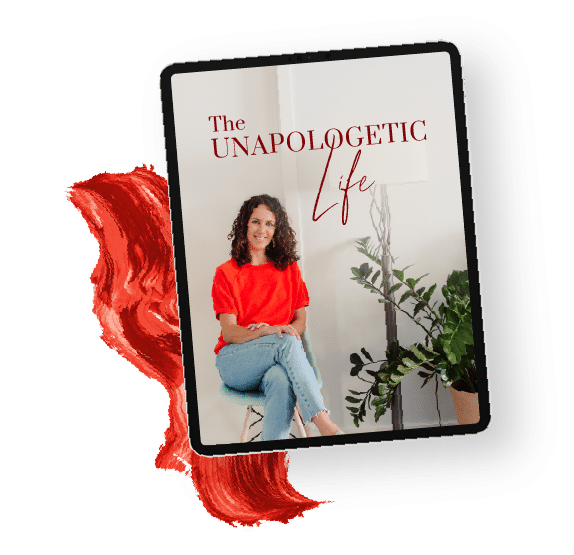
A twice-a-month round-up of inspirational stories, lessons, practical tips and encouragement for living your most authentic, unapologetic life.
The Unapologetic Life
RECENT POSTS
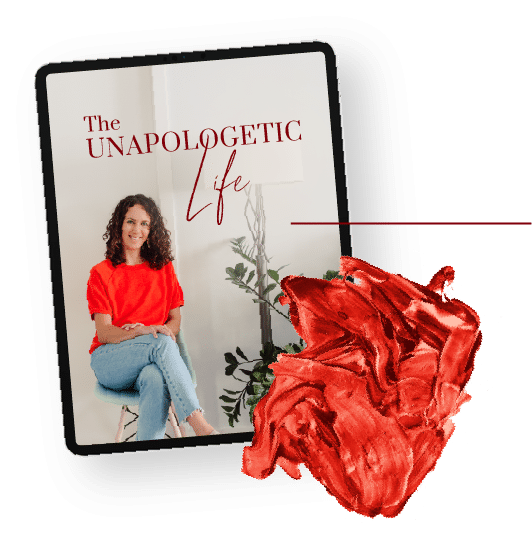
The Unapologetic Life
A twice-a-month round-up of inspirational stories, lessons, practical tips and encouragement for living your most authentic, unapologetic life.






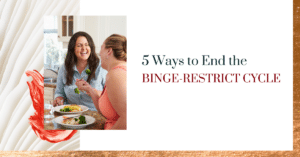
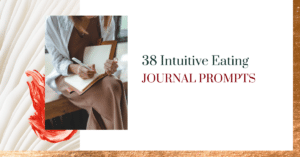
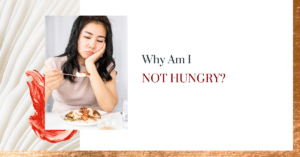
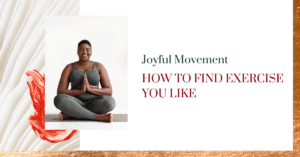
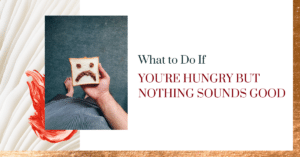
Of the less than 5% of dieters who were able to “successfully” maintain their weight loss, their behaviors closely resemble that of anorexia (ie highly restrictive).
Beautiful page!
Hi Jennifer, thank you for sharing your story. I’m unable to give specific nutrition or medical advice in general forums like this, I’m only able to do so with individual clients. I have a blog post that goes into this a bit, which you may find helpful: Intuitive Eating Q&A
I just found this article after looking at the WW website again and knowing that counting points and measuring and weighing food servings isn’t how I want to spend my time. I want to learn how to make peace with where I am right now and love myself even though I am at my highest weight ever! I do exercise a few days a week although I have fallen off that wagon recently. Too hot. I use a strength training band for resistance exercises too. My sisters are all very thin and I know that comparing my body to theirs is not helpful for me at all. I was on WW awhile back. It was about getting the weight off and getting to lifetime membership status. I have never really been an “embrace the journey” type. Needless to say I have gained all that weight back and little bit more over the years. I hate Diets. Dieting to me is deprivation. I would wait all week for my cheat day which was on weigh in day. I just joined a couple of WW groups on FB. Might drop out of those because dieting, no matter what type is not for me. Health for me is the focus. I know that any other food plan, especially those that cut out entire types of food are not going to work for me. I have been curious about intuitive eating thing for awhile now. Decided it is time to learn more.
All I can find on these online articles is what intuitive eating is and what it sets out to accomplish nothing anywhere about how to implement it after years of food obsession. They all want you to buy their coaching packages… just saying.
Hi there, this post was to help people figure out if intuitive eating will be something they want to pursue. There are several other posts that go into more tips and suggestions on how to implement it – here are a couple to start with: How to Start Intuitive Eating (https://alissarumsey.com/intuitive-eating/how-to-start-intuitive-eating/), How to Eat for Fullness vs. Satisfaction (https://alissarumsey.com/intuitive-eating/fullness-vs-satisfaction/), How to Get Rid of the Food Police (https://alissarumsey.com/nutrition/how-go-get-rid-of-food-police/), How to Start Making Peace with Food (https://alissarumsey.com/intuitive-eating/how-to-stop-overeating/), How to Shift Your Mindset From Scarcity to Abundance
(https://alissarumsey.com/intuitive-eating/how-to-shift-your-mindset-move-towards-intuitive-eating/).